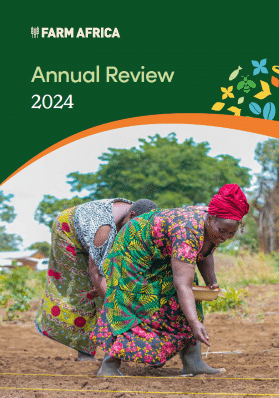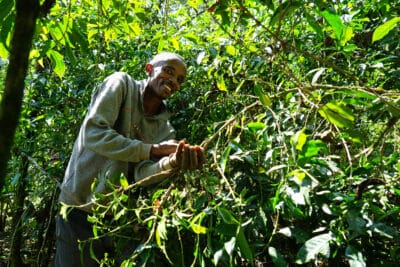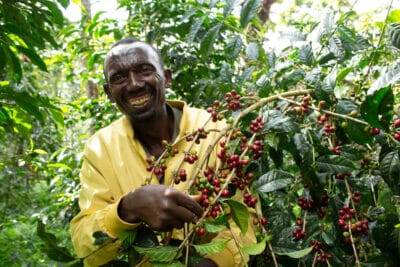Stories
Ethiopia
15 August 2025
Export success for Ethiopian coffee coops
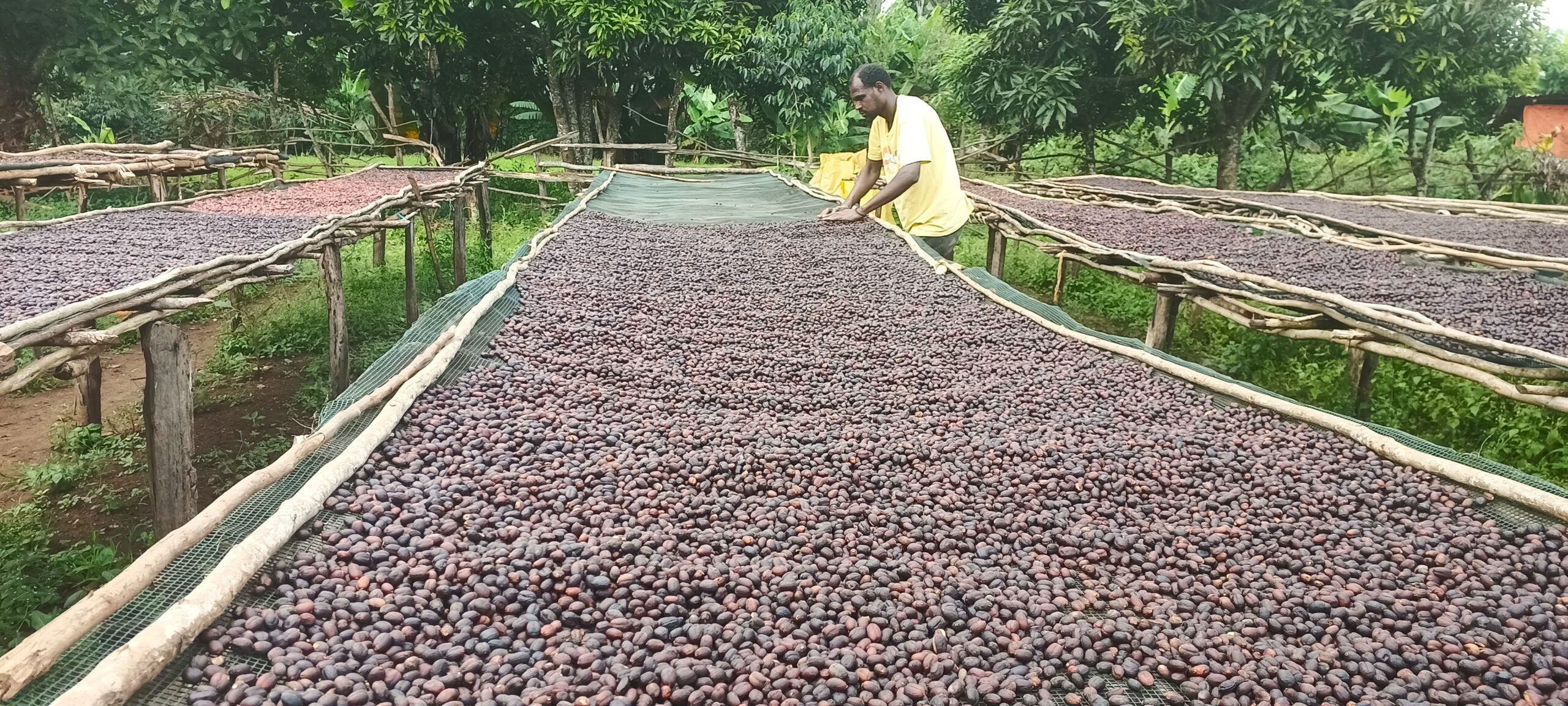
A landmark partnership is opening international markets for forest coffee cooperatives protecting Ethiopia’s Harena Forest.
Members of three forest management cooperatives working with Farm Africa to protect the Harena Forest in the ecologically critical Bale Eco-region of Ethiopia are reaping the benefits of a contract to export wild coffee to Zensho Trading Co Ltd in Japan.
The green business partnership, established in 2024, facilitated the export of 19,200kg of specialty grade organic coffee last year and lays the groundwork for consistent, high-volume exports in the years ahead.
Local impact
How does the partnership benefit the Harena Forest and the local communities working to protect it? The coffee is being sold by the Garen Bale Forest Cooperative Union, which represents 40 community-led forest management cooperatives operating in the Bale Eco-region.
Now endangered in the wild, arabica coffee still flourishes as a native plant of this forest and some of the cooperatives have been working to improve the profitability of forest-friendly coffee production.
In 2024, three of the cooperatives secured their second international export sale of coffee and it was the first time the farmers negotiated directly with the buyer, who agreed to pay a premium price if the coffee could obtain Japanese Agricultural Standard certification.
The 55 farmers who supplied coffee for the three cooperatives to sell have earned a net average of ETB 544,624 (£3,208) each.
The three cooperatives have also each earned a net average of ETB 600,682 (£3,538) in commission, which will be invested in local livelihood development and conservation.
The financial success of these forest-friendly businesses gives the cooperative members an economic incentive to keep conserving the forest where the wild coffee grows.
“We formed the forest management cooperative to grow together. The cooperative is for all: the poor as well as the rich.”
Abdurahman Kul
founding member, Gutiti cooperative
On course for sustainability
Earlier Farm Africa initiatives laid the groundwork. With support from the European Union and the Norwegian Embassy in Addis Ababa, we’ve strengthened coffee cooperatives and established an extensive network of Participatory Forest Management Cooperatives, who now protect the forest and promote forest-friendly enterprise within their designated zones.
Building on those foundations, in partnership with the local government agricultural office, Farm Africa has been working closely with selected cooperatives on a targeted project to improve the quality and quantity of Bale’s forest coffee. Once graded at levels four and five, the coffee is now being recognised at grades one and two – internationally sought-after standards.
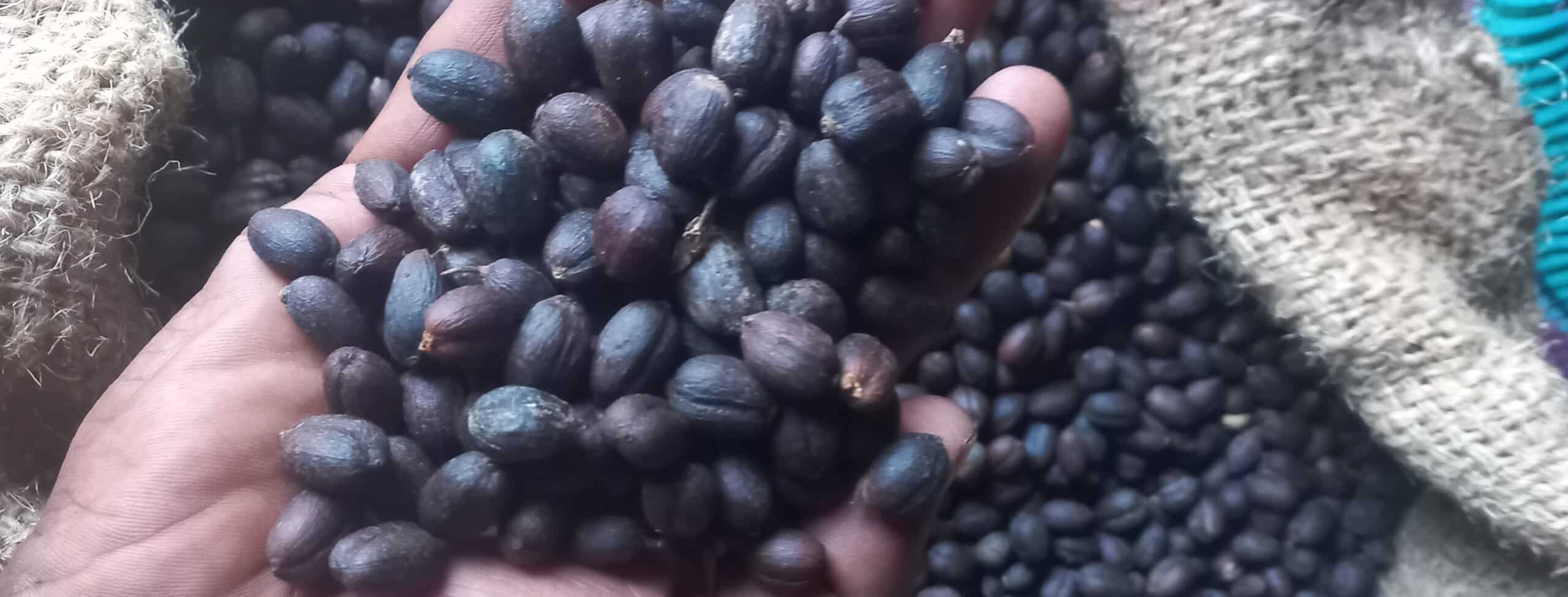
The transformation was made possible through extensive training, access to post-harvest materials, the determined commitment of coop members and ongoing support from Forests of the World, funded by Danida.
“The training opened my eyes”, says Abdurahman. “Because of it, I’ve learnt to produce high-quality coffee and improve my post-harvest handling. With the money I’ve earned, I plan to buy furniture and send my children to school. The more training I receive, the more changes I can make to my life.”
Establishing the green export partnership with Zensho called for a different type of collaboration. Farm Africa helped navigate the complex certification processes by supporting the three cooperatives to obtain Japanese Agricultural Standard (JAS) certification for organic coffee. We also facilitated the acquisition of an export licence for the Garen Bale Forest Cooperative Union, enabling smooth transactions and long-term market engagement for its member cooperatives.
Global reach
The financial success of these coffee farmers has implications beyond individual prosperity. It strengthens the local economy, provides resources to improve local education and infrastructure, and incentivises conservation efforts. By proving that sustainable practices can lead to significant economic gains, the project is setting a precedent for ethical and environmentally friendly coffee farming worldwide.
As partnerships grow and appreciation of their specialty forest coffee spreads, the future holds even greater promise for the farmers of Bale.
This story is from Farm Africa’s Annual Review 2024. Find more case studies from our projects and download our annual review below.
Farm Africa Annual Review 2024
Farm Africa reached 771,221 people in 2024: 26% more than in 2023. In this year’s Annual Review, we invite you to meet some of the project participants we’ve been working with and learn how they are using sustainable farming to power lasting change for their communities.
Download (3.23mb)
